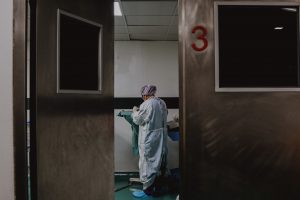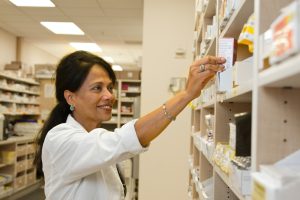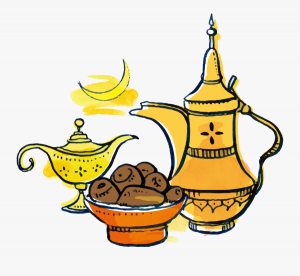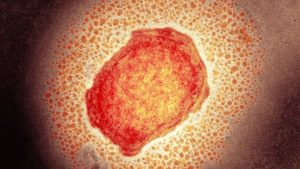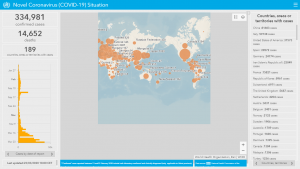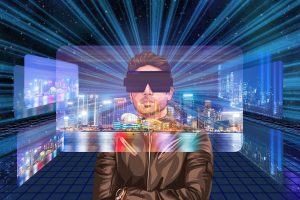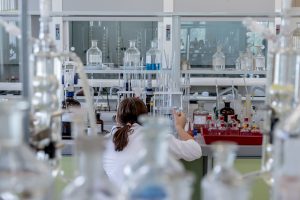Mirror On The Wall, Who’s The Fairest Of Them All?

The cosmetic industry is a multi-billion dollar business, with skin-lightening or skin-whitening products holding a huge profit margin. A survey revealed that up to 61% of women in Malaysia agreed to the notion that a fairer complexion equates to greater beauty [1]. This statement alone justifies Malaysia’s ever-growing demand for skin-lightening products.
Undoubtedly, the sales of cosmetics have been steadily increasing in Malaysia. But how many of us know the safety of the ingredients in our products?
The Forecasted Market Value For Skin Lightening Products Worldwide (2017-2027)

Banned Cosmetic ingredients In Malaysia
The presence of notorious companies with unethical manufacturing practices has always been a concern for many. In the cosmetic industry, in particular, this means the addition of dangerous substances to bring out quick and unrealistic results.
Just last year, a study was conducted to investigate the status of cosmetic safety in Malaysia. A total of 104 whitening products were included in this study through random sampling methods.
These products were tested for safety and the presence of harmful substances such as mercury. The results revealed that close to 50% of the whitening products were unregistered, with most of them containing high concentrations of mercury and banned ingredients [2].
| Hydroquinone | A “bleaching agent” that reduces the production of melanin (skin pigment), resulting in a lighter skin tone. Long-term and incorrect hydroquinone use is associated with cancer risk and blue-black skin discoloration [3]. |
| Mercury (mercurous chloride, calomel, mercuric or chemical symbol ‘Hg’) | Cosmetics containing mercury are banned in Malaysia. It interferes with the natural skin pigmentation process, resulting in weaker skin protection.
The most common initial adverse effects of mercury includes:
In the long run, mercury may also contribute to severe endocrine and nervous system damage [4], [5]. |
| Isotretinoin | Isotretinoin is a prescription-only medication (POM) that’s used in the treatment of acne. It’s not suitable for everyone, and its use should be under health professionals’ discretion. For example, isotretinoin must be discontinued at least a month before pregnancy to avoid the risk of birth defects.
Therefore, unregulated use of isotretinoin, that too, in dangerous amounts, subjects consumers to significant adverse effects [6]. |
| Steroids | In general, steroid medicines must not be used for more than two weeks. Continued topical steroid application may cause withdrawal reactions such as skin burning and redness [7].
That being said, regular use of cosmetics containing steroids such as betamethasone 17-valerate is dangerous and inadvisable. |
It is worth noting that products with these banned ingredients often bring promising initial results, convincing the public to continue the purchase and use. However, long-term exposure to such products may produce severe and irreversible health damage.
How To Protect Yourself?
The first rule is to always read through a product’s ingredient list. Ensure the product is suitable for your skin without any potential allergens or irritants. However, most illegal products are not transparent with the ingredients in their products.
Therefore, checking the official NPRA website detailing any banned cosmetic products is also advisable. The names and pictures of banned products and the detected illegal ingredients are presented to consumers to discourage their use.
Alternatively, you can download the NPRA Product Status application to search for the product name, notification number, and active ingredients. Any products without Pharmaceutical Product Registration and Cosmetic Notification Status from the Ministry of Health (MoH) are unregistered and are, therefore, not wise to be used.
Building A Safer Community
The first step to building a safer and healthier community is to change the mindset of glorifying fair skin, and change starts with you! Cosmetic companies with unethical manufacturing practices often prey on and profit from insecurities. That being so, learn to unlearn the harmful beauty practices and accept yourself for how you are.
Next, do your part by reporting any suspicious products you come across anywhere in Malaysia. Your complaints could be forwarded through the Civil Service Complaints Management System portal (SisPAA) or at the nearest Pharmacy Enforcement Branches. Your information will help the Ministry of Health to get to the bottom of this problem.
Bottomline
No beauty standard is worth hurting your health and safety. Your skin functions as more than just your appearance; it is also an organ and a protective barrier against the outer world.
Therefore, prioritize nourishing your skin with ingredients that help to improve longevity and health. Challenge the destructive societal norms and celebrate your natural skin tone, for real beauty comes from nothing but self-confidence.
References:
- Ridzuan, P. M., Kummara, N. M., Islah, M. H., Jeyamathi, V., Nur-Alisyia, A. A., & Ridzuan, A. R. (2021). Review on Aesthetic & Cosmetic Industries in Malaysia-A Way Forward. International Journal of Academic Research in Business and Social Sciences, 11(6), 744-755.
- Rusmadi, S. Z., Syed Ismail, S. N., & Praveena, S. M. (2015). Preliminary study on the skin lightening practice and health symptoms among female students in Malaysia. Journal of environmental and public health.
- Wan Mohamed Radzi, C. W. J., & Nordin, F. N. M. (2022). Status of cosmetic safety in Malaysia market: Mercury contamination in selected skin whitening products. Journal of Cosmetic Dermatology, 21(12), 6875–6882. https://doi.org/10.1111/jocd.15429



